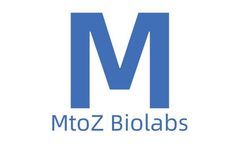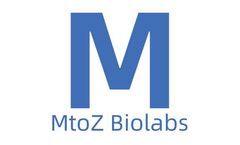Neurodegeneration Articles & Analysis
73 articles found
In the bustling city of the cell, proteins are the tireless workers. They build structures, carry messages, and catalyze the chemical reactions essential for life. But a protein's job isn't static. Its function, location, and even its lifespan are tightly controlled by a series of modifications. Among the most versatile and critical of these is Protein Ubiquitination, a process that acts like a ...
In the intricate world of cellular biology, proteins are the undisputed workhorses. They are assembled based on a genetic blueprint, but their story doesn't end there. After synthesis, proteins undergo a vast array of chemical modifications known as post-translational modifications (PTMs). These changes act as molecular switches, fine-tuning a protein's function, localization, and stability. ...
Optogenetics has emerged as a transformative tool in the field of neuroscience, allowing researchers to manipulate neuronal activity with unprecedented precision. At the heart of this technology lies the use of adeno-associated viruses (AAVs), which serve as robust delivery vehicles for light-sensitive proteins into targeted neuronal populations. This article delves into the significance of ...
Human astrocytes-cerebellar (HA-c) represent a significant advancement in the field of neurobiology, particularly in understanding cerebral development, functionality, and pathology. Astrocytes, the star-shaped glial cells in the brain, play crucial roles in maintaining homeostasis, supporting neuronal function, and responding to injury. The cerebellum, responsible for motor control and cognitive ...
In the realm of drug discovery, the search for innovative therapies often leads to new paradigms. One such paradigm that has gained significant traction in recent years is the development of PROTAC (Proteolysis Targeting Chimeras) technology. This groundbreaking approach unlocks new potential in targeting previously “undruggable” proteins, paving the way for transformative therapies ...
The advent of organoid technology has transformed biomedical research through the development of 3D models that precisely replicate human organ structures and functions in a physiological context. Creative Bioarray establishes itself as a world leader in life science innovation through its complete range of organoid services that enhance drug discovery, disease modeling, and personalized ...
APIs for Parkinson's Disease: Continuing the Fight Against Neurodegeneration Parkinson's disease, a progressive neurodegenerative disorder, manifests through symptoms such as bradykinesia, muscle rigidity, and tremors. ...
Introduction Custom knockout cell lines represent a groundbreaking advancement in molecular biology and genetics, allowing researchers to manipulate genes with precision and study their functions in a controlled environment. By creating cell lines with specific genes “knocked out,” scientists can investigate disease mechanisms, screen drug candidates, and develop gene therapies more ...
Beyond cancer, understanding cell cycle regulation has implications for tissue regeneration, neurodegeneration, and immune system disorders. Conclusion The cell cycle is a fundamental process that ensures healthy cell division and growth. ...
Conversely, exosome metabolomics provides valuable information about cellular metabolic reprogramming, particularly in diseases such as cancer, neurodegeneration, and metabolic disorders. The combination of these approaches allows for a comprehensive view of the molecular environment within and around exosomes. ...
What Is PROTAC Technology? Proteolytic targeting chimera (PROTAC) is a new type of drug design technology that works by inducing the degradation of target proteins. Unlike conventional small molecules that typically inhibit protein function, PROTACs facilitate the ubiquitination and subsequent degradation of specific proteins. This bifunctional molecule consists of two distinct elements: a ...
MicroRNAs (miRNAs) are small, non-coding RNA molecules that play a crucial role in the regulation of gene expression. Their ability to modulate various biological processes makes them significant players in the field of molecular biology and medicine. Among the various tools utilized in research and therapeutic applications, miRNA mimics have emerged as powerful instruments for manipulating and ...
Human umbilical cord cells, particularly those found in Wharton’s jelly, have emerged as a focal point in regenerative medicine and cellular therapy. Wharton’s jelly is a gelatinous substance that surrounds the umbilical cord’s blood vessels, providing structural support and protection. It is rich in mesenchymal stem cells (MSCs), which are known for their unique regenerative ...
Differentially expressed proteins refer to proteins that show significant changes in their expression levels in different biological samples or under different treatment conditions. Observing such differential expression is crucial for understanding cellular physiology and disease mechanisms. For example, some proteins may be upregulated or downregulated in health and disease states, or between ...
Protein phosphorylation is an important post-translational modification process that involves adding a phosphate group to an amino acid residue in a protein, usually a serine, threonine, or tyrosine residue. Protein phosphorylation plays a key role in regulating various biological processes within the cell, including signal transduction, cell cycle, and metabolism. Therefore, detecting protein ...
Acetylation detection of a specific protein is a method used to determine whether and where acetylation modifications have occurred on a protein. Acetylation is a common post-translational modification of proteins, typically occurring on lysine residues of proteins, and plays a crucial role in regulating protein function, cell signaling, gene expression, and disease onset. For instance, the ...
Oxidative phosphorylation is the process by which mitochondria produce ATP (adenosine triphosphate) in the cellular respiration chain. It is a crucial step in cellular energy metabolism. In this process, electrons are transferred from one carrier to another through a series of oxidation-reduction reactions and are ultimately passed to oxygen to form water. The energy released by this electron ...
In biomedical research, the detection and analysis of biomarkers are crucial. Among them, glycoproteins are an essential biomarker that plays a key role in many biological processes, including disease onset, progression, and treatment response. The Tandem Affinity Purification (TAP) of glycoprotein is an efficient detection method.What Is a Glycoprotein?Firstly, let's understand what a ...
Mitochondria are a unique type of organelle present within cells, serving as the primary source of energy within living organisms. They are responsible for several life-sustaining processes, including energy production, reducing free radicals, and maintaining cellular signaling. Proteins within the mitochondria play a key role in these processes.Why Sequence Mitochondrial Proteins?The sequencing ...
When it comes to the fascinating world of proteins, some names like collagen or hemoglobin might ring a bell. But what about tenascin-C, more commonly known as TNC protein? This often-overlooked molecule plays a vital, if subtle, role in how our cells talk to each other. Let's delve into the remarkable story of TNC protein and why it deserves more of the spotlight. What is TNC Protein? Before ...













